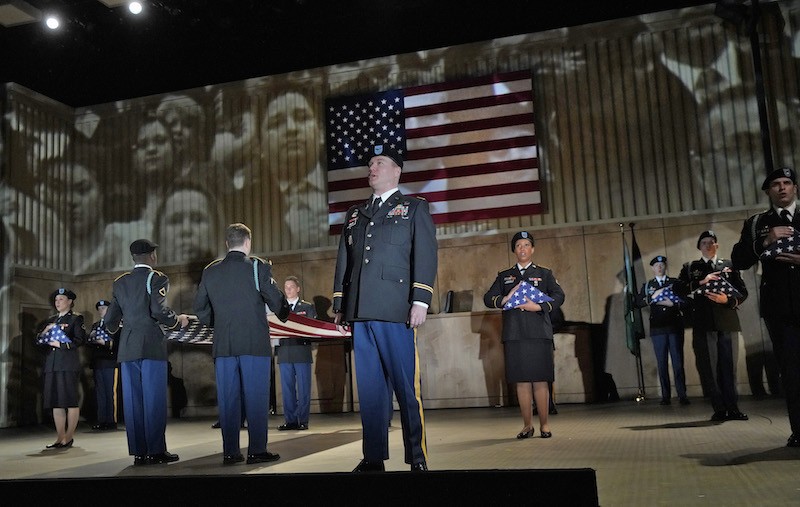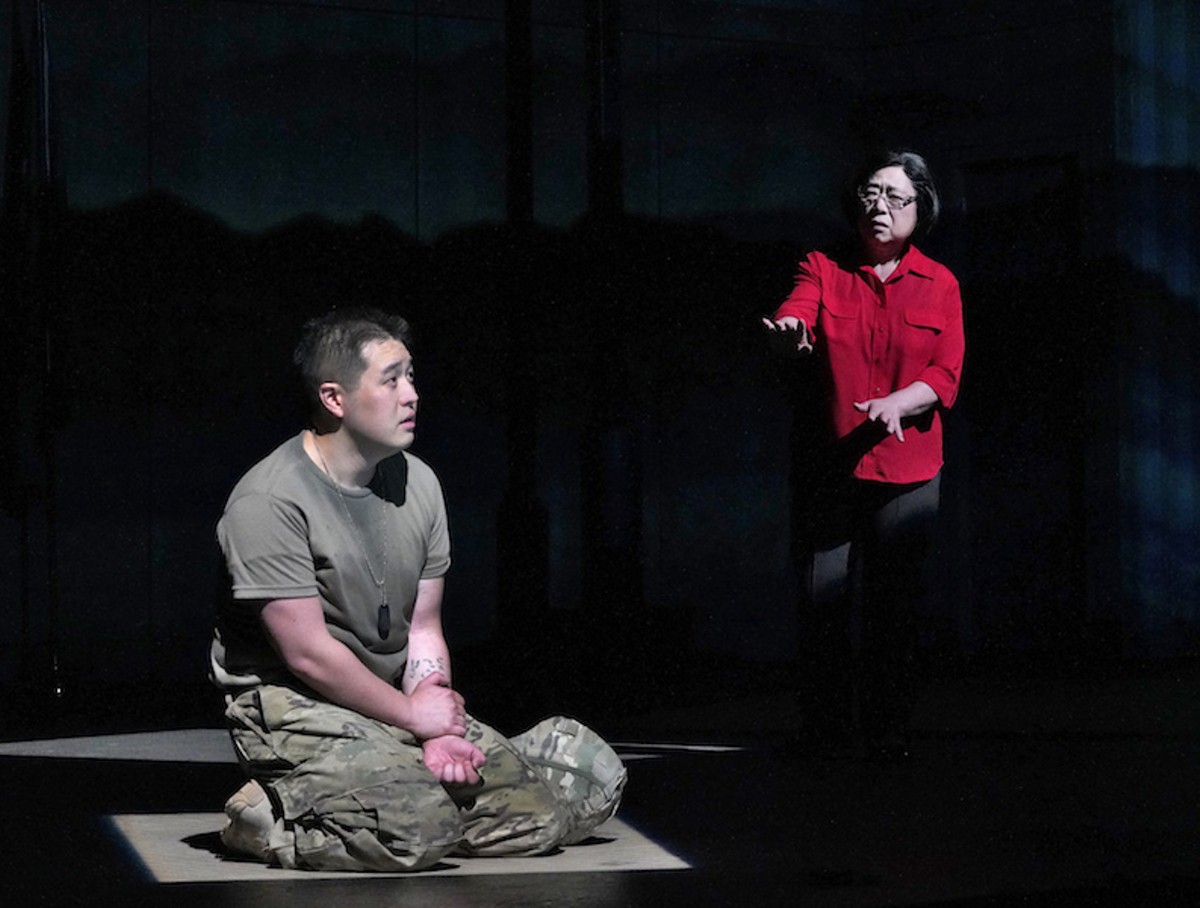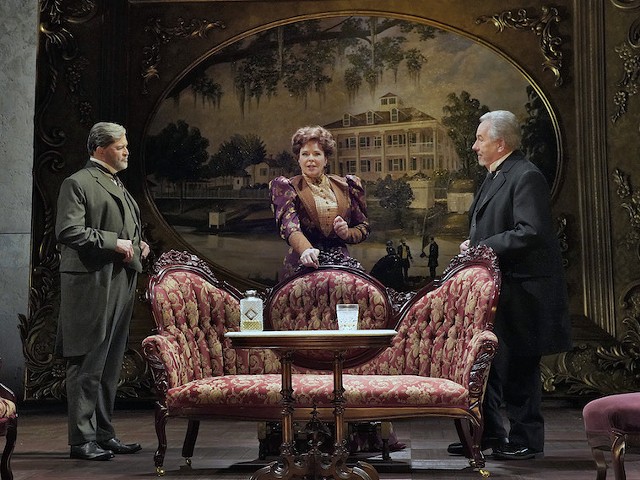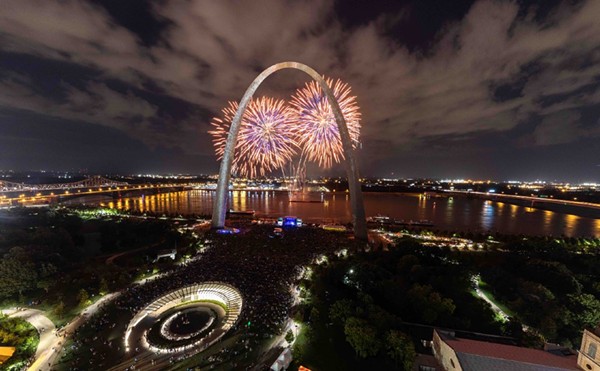An American Soldier does eventually provide some moonlight — our hero in Afghanistan and his almost-sweetheart back in New York City sing a lovely duet about the radiance of Earth’s only natural satellite. But that initial impression is absolutely correct. That duet is one of the only moments in this opera where you can exhale, where you can find something beautiful. The rest is all harsh, hateful, fluorescent truth.
And the truth is this: On October 3, 2011, an American soldier named Danny Chen killed himself while on serving in the Kandahar region of Afghanistan. He was nineteen years old and had endured relentless abuse from his sergeant and fellow troops. Eight were later court-martialed. The opera based on these events, An American Soldier, made its world premiere Sunday in a production commissioned by Opera Theatre St. Louis. (A previous one-hour version made its debut in Washington, D.C., in 2014.) This production has much to commend it, but it also makes for a singularly uncomfortable evening. There is no catharsis here, only horror.
Indeed, we see a kid who wanted nothing more than to be treated as fully American being called racial slurs, ordered to address his fellow soldiers in Chinese and dragged on his back across gravel. We see his fellow soldiers pelting him with rocks. And then we see his sergeant, the man who basically tortured him to death, found not guilty of all but the least serious charges. All of this really happened — and this too: The sergeant was allowed to remain in the military.
As a story it’s devastating, but as theater, it’s almost numbing. There is never any hope for Danny Chen — we know he’s dead when the story opens, and if there was anything he could have done differently, short of not enlisting, we never learn about it. Nor do we ever see his horrible sergeant (here named Marcum, and played by a properly loathsome Wayne Tigges) as anything other than a sadistic racist. In real life, Danny’s sergeant reportedly testified at his court-martial that he may have had PTSD after serving three war-zone deployments. You can’t help but think it could have made a great, if self-serving, aria. Instead, he remains a cipher.

Unfortunately, that's true of just about everyone in this production. The only time any of the soldiers seem anything other than one-dimensional is during a song in the first act about what sorry motherfuckers they are — a rare moment of humor and humanity in the middle of what otherwise feels like one cursed American soldier’s via dolorosa.
As Danny, Andrew Stenson does a great job with a difficult part. He’s on stage at his tormenters’ court-martial, an all-too-real ghost questioning their testimony, as well as in vivid flashbacks. Stenson lets us see the bookish high school student from New York's Chinatown briefly become what he dreamed of being, only to lose his sangfroid upon being transferred to a different company and its awful leader upon arrival in Afghanistan. And his mother and sweetheart, Mika Shigematsu and Kathleen Kim both capably bring to life women who could all too easily become stock characters.
Like the plot, the music here is not easy. Composer Huang Ruo draws inspiration from both avant-garde music and ancient and folk Chinese music, and to Western ears, it can sound dissonant and unmelodic. The cast handles it admirably, but you won't leave this one with a song in your heart. And maybe you shouldn't, no matter how much you long for that relief: This isn’t that kind of story.
Like Danny, you may wish you could let this cup pass, wish you could avert your eyes from the grinding cruelty on stage. But when that finally happens, when the soldiers solemnly sing “E Pluribus Unum,” telling us that out of many, we are one, it isn’t at all what you wanted. Is the song an ironic commentary on the military’s pieties or praise of the ideals it aspires to, no matter how imperfect its execution? In director Matthew Ozawa's staging, the point remains abstruse. And after watching a young man — yes, an American soldier — being tormented by his own platoon, you may find ambiguity is the last thing you want.
Danny Chen's only relief from post-mortem torment is near the end, a black soldier's testimony that he, too, found Sergeant Marcum impossible, that he was tortured in the same exact ways. Finally, at this point, Danny seems to understand he wasn't to blame for his breakdown. It may be absolution, but it's a far cry from a happy ending.







